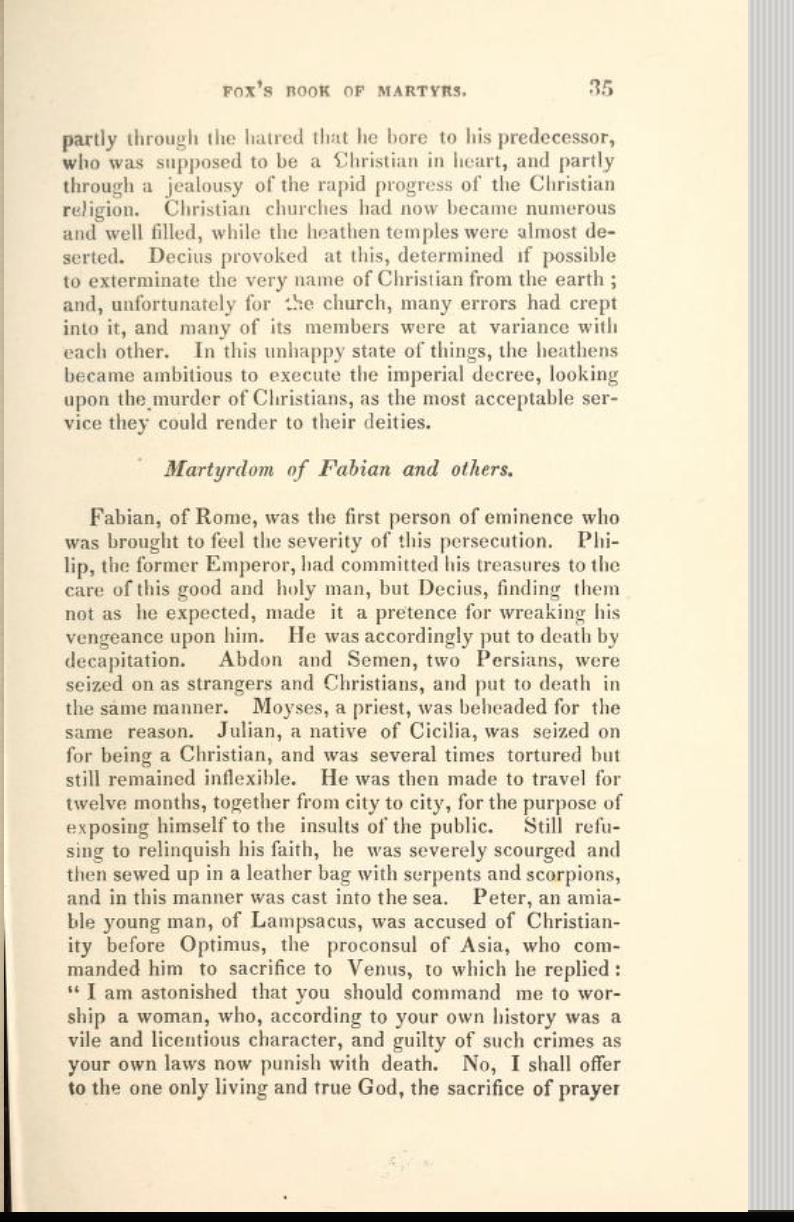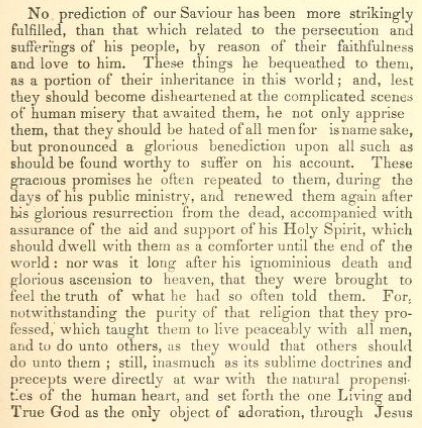John Foxe records Christian Martyrs in his Book of Martyrs.
- Type
- Book
- Source
- John Foxe Non-LDS
- Hearsay
- DirectReprintSecondary
- Reference
John Foxe, Foxe's Book of Martyrs (New York: Hurst and Co., 1870), 5, 35
- Scribe/Publisher
- New York/Hurst & co
- People
- John Foxe
- Audience
- Reading Public
- Transcription
No prediction of our Saviour has been more strikingly fulfilled, than that which related to the persecution and sufferings of his people, by reason of their faithfulness and love to him. These things he bequeathed to them, as a portion of their inheritance in this world ; and, lest they should become disheartened at the complicated scenes of human misery that awaited them, he not only apprise them, that they should be hated of all men for is name sake, but pronounced a glorious benediction upon all such as should be found worthy to suffer on his account. These gracious promises he often repeated to them, during the days of his public ministry, and renewed them again after his glorious resurrection from the dead, accompanied with assurance of the aid and support of his Holy Spirit, which should dwell with them as a comforter until the end of the world : nor was it long after his ignominious death and glorious ascension to heaven, that they were brought to feel the truth of what he had so often told them. For notwithstanding the purity of that religion that they professed, which taught them to live peaceably with all men, and to do unto others, as they would that others should do unto them ; still, inasmuch as its sublime doctrines and precepts were directly at war with the natural propensities of the human heart, and set forth the one Living and True God as the only object of adoration, through Jesus. . . Fabian, of Rome, was the first person of eminence who was brought to feel the severity of this persecution. Philip, the former Emperor, had committed his treasures to the care of this good and holy man, but Decius, finding them not as he expected, made it a pretence for wreaking his vengeance upon him. He was accordingly put to death by decapitation. Abdon and Semen, two Persians, were seized on as strangers and Christians, and put to death in the same manner. Moyses, a priest, was beheaded for the same reason. Julian, a native of Cicilia, was seiced on for being a Christian, and was several times tortured but still remained inflexible.
- Source Link
- https://archive.org/details/foxesbookofmart00fo/page/34/mode/2up?q=fox%5C%27s+book+of+martyrs
- Citations in Mormonr Qnas
The B. H. Roberts Foundation is not owned by, operated by, or affiliated with the Church of Jesus Christ of Latter-day Saints.


